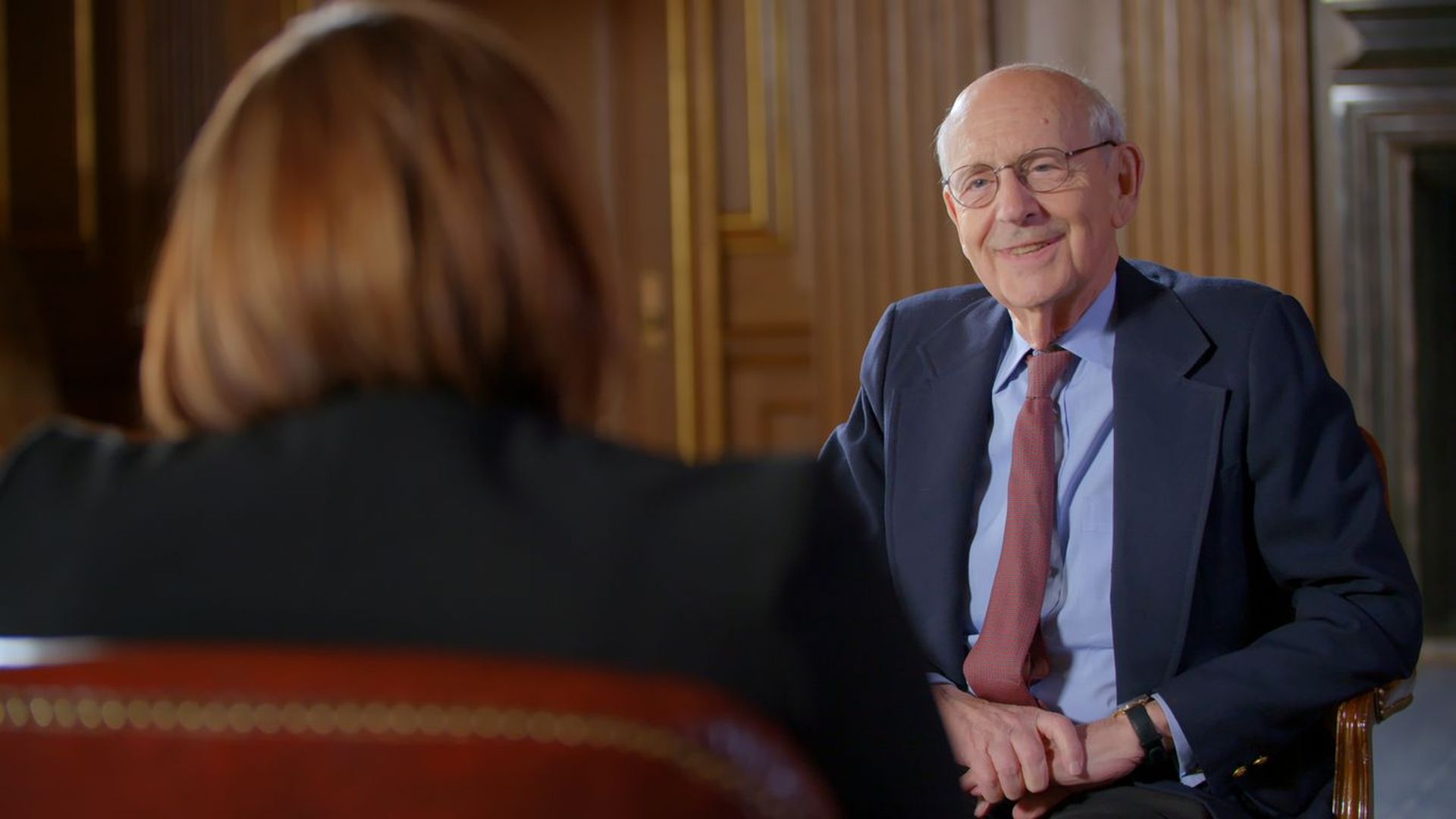Talking democracy with Justice Breyer
Add Axios as your preferred source to
see more of our stories on Google.

Justice Stephen Breyer speaks with Axios' Margaret Talev. Photo: "Axios on HBO"
In February 2020 — weeks before COVID-19 became a pandemic and months before Donald Trump's supporters stormed the U.S. Capitol — Justice Stephen Breyer agreed to sit for an interview with Margaret Talev for "Axios on HBO."
Why it matters: Amid the instant analysis on Wednesday about the political effects of his retirement, Talev's mind returned to their conversation — and a speculative question she'd asked about the next presidential election.
Flashback: Margaret recounts here what she asked: If the Supreme Court ever had to step in again to resolve a presidential election, was he confident the American people would peacefully accept the results — as had been the case in Bush v. Gore?
- "You never know," he said, two times in a row. After the 2000 decision, "There were no riots in the streets. There were no paving stones thrown. There were no guns."
- The justice said some who disagreed with the ruling might argue the merits of some rioting, but he disagreed: "Before you conclude that that's right, turn on your television set and see what happens in countries who decide their controversies that way. And I think an understanding of that pervades the public."
- "There is a lot of work that's gone into" preserving and repairing American democracy, he told me then. "There was a civil war. There were 80 years of segregation. There have been lots of ups and downs in this country. And, OK, we've got over them ... and I think the rule of law has gotten stronger."
- Parts of our conversation made it to air, with the pandemic overtaking the news; other parts did not.
The big picture: Breyer quickly shut down any retirement talk that day and wouldn't touch topics like abortion or other matters likely to come before the court.
But he spoke passionately about the importance of the rule of law, the danger of efforts to politicize the Supreme Court and the arc of American democracy.
- He worried about the risks of Americans' declining understanding of civics. He expressed optimism about America's evolution from periods like the Civil War and the civil rights movement.
- He's written about these topics extensively in books including, "Making Our Democracy Work" and "The Authority of the Court and the Peril of Politics."
What we're watching: How will he engage on these issues once a nominee is confirmed and he leaves the high court?
